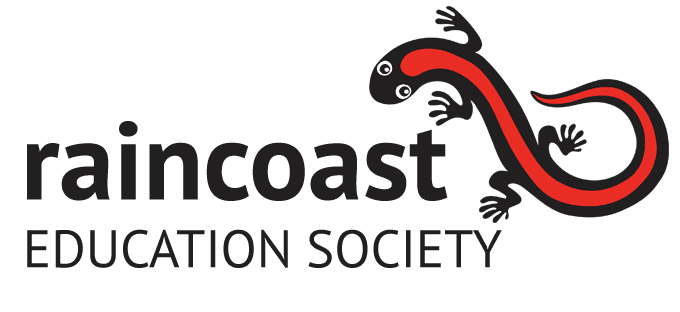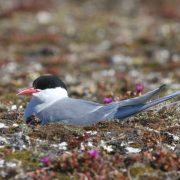School Programs
“Provide hands-on, field-based outdoor education to visiting elementary and secondary schools”
Our school programs, taught by certified educators, offer unique and immersive learning opportunities to connect youth with the rich environmental and cultural identity of the region and build a life-long appreciation and respect for the natural world. Our educators will create dynamic and engaging programs tailored to your group’s age and interests.
What programs do you offer? We offer field schools around Tofino and Ucluelet that connect youth with the environment. Some possible topics for school programs are intertidal ecology, rainforest ecology, oceanography and plankton ecology, and many more. Contact us today and our educators will plan an engaging field school experience created for the age/interests of your group.
How long are your programs? Programs run 1.5 – 2 hours or 5- 6 hours. We will do our best to accommodate your preferred topic, date and time, however some programs are tide and equipment dependent.
How much do your programs cost? We offer our 1.5 -2 hour school programs for a rate of $300 per group, or a 5 – 6 hour program for $600 per group.
How do we book a program? Please contact us to inquire about our availability or for more information – we will do our best to book you in for the date/time you request.
*Our group size is 1-20 students and this can depend on our number of available educators on the requested day, as there is a student/teacher ratio. If you have groups larger than 20, please specify the number of participants in your inquiry.
Intertidal Ecology
An exploration of intertidal ecology is a great way to learn about the fascinating creatures that inhabit our coastal tide pools. Tide pools exist in the rocky intertidal zone (intertidal: the area between the highest high tide and the lowest low tide). We have two high tides and two low tides every day (~6 hrs between each change); thus, half the time the rocky intertidal zone is underwater and half the time it is exposed to the air. Not only do the marine creatures that inhabit this rugged environment have to deal with fierce waves, cold water and marine predation when the tide is in, they also have to adapt to being out of the water for extended periods and avoid terrestrial predation when the tide is out.
Our educators draw on both scientific and cultural perspectives to provide a unique appreciation of this fascinating ecosystem. Intertidal exploration can only take place during low tide.
Oceanography and Plankton Ecology
Plankton (from greek planktos, meaning wanderer) are marine organisms that live in the water column and cannot swim against the current. Some are photosynthetic and use the sun’s energy to grow, while others are true animals, eating other organisms to grow. Though you may not always see them, plankton are out there, and some will become a feast for tiny fish or giant whales.
Our educators will demonstrate how oceanographers collect data on our world’s oceans. Your group can examine plankton under a microscope and take part in a beach seine along the eelgrass beds. We’ll discuss the importance of eelgrass ecosystems and the food web connections of this fascinating group of organisms. Beach seines depend on low tide and equipment/location availability.
Avian Ecology
Birds – the toothless, feathered, egg-laying animals that inhabit just about every corner of the Earth – are amongst the most diverse group of chordates. In our avian ecology program, students will explore the diversity of songbirds, seabirds, and shorebirds found in Clayoquot Sound.
Instructors will provide a brief introduction to classification systems and characteristics and identification of species, with a focus on habitat preferences. Teaching will be tailored to the grade (curriculum) level and requirements of individual groups. This is a great introduction to the birds found on the west coast! BYOB(incoculars).
Need help?
If you have any questions about our courses, our events, or just us in general – we’re here to help!



